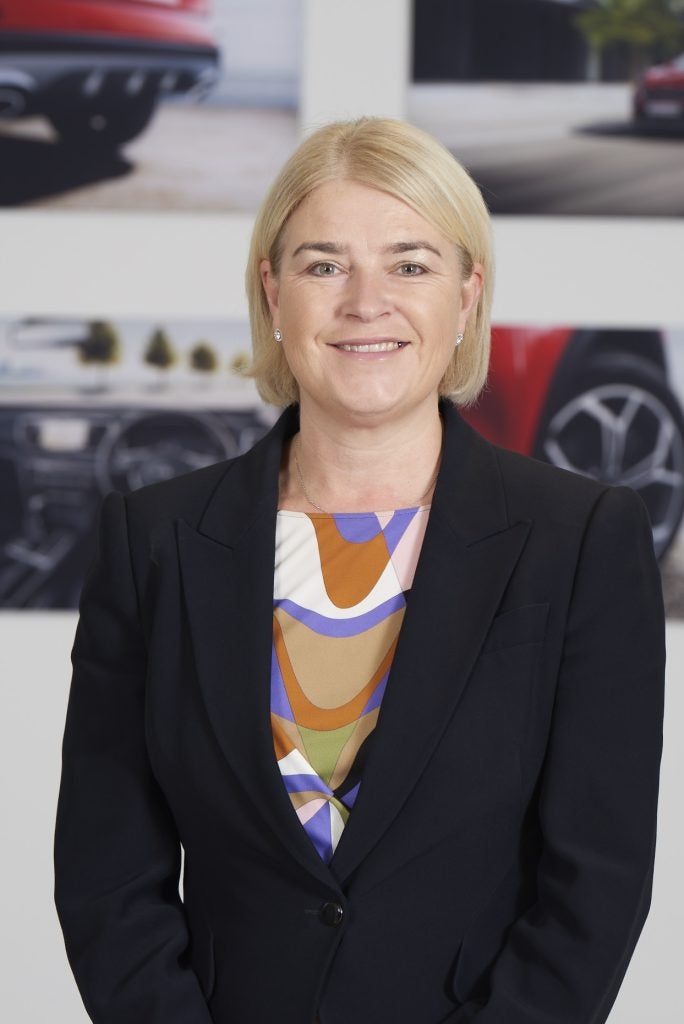
Customer experience and satisfaction is key for OEMs and dealers. An unhappy customer could turn into more lost business. We spoke to Kia UK and CX consultants ‘Reputation’ to learn more.
The Internet is the gateway to information from across the globe and with latest data showing that Google processes over 99,000 searches every single second it’s safe to say that people like a Google.

Discover B2B Marketing That Performs
Combine business intelligence and editorial excellence to reach engaged professionals across 36 leading media platforms.
With this in mind customer feedback and experiences are imperative to a business’s success; a bad review could mean a lost customer or worse if the review influences others.
To ensure positive reviews all round Kia Motors UK has joined forces with Reputation, described as a global leader in customer experience (CX), to revamp and enhance its customers’ experience programme, manage multiple touchpoints and drive vehicle sales.
We spoke to Kate McLaren, general manager for customer quality, Kia, and Anthony Gaskell, managing director EMEA at Reputation to discuss the increasing score as well as how this will be maintained in the changing automotive landscape.

Just Auto (JA): Could you tell me a little bit of background on both your roles?
Kate McLaren (KM): I’m the general manager customer quality for Kia UK. I’ve been with Kia for around three and a half years. Customer quality team is made up of the customer experience team, the care academy, training – our technical and non-technical training for dealers, and our digital and data solutions team.
The cool thing is that the customer experience (CX) insights inform our training, from a skills point of view from sales and service. The insights can inform the tools that we have provided to our dealers such as lead tools, chat tools and data sharing tools to give a better experience.

Matthew Patchett (MP): I’m a senior customer experience strategist at Reputation. I’ve been in the business now about a year and a half. We are ultimately a software-as-a-service vendor. We help clients with the whole CX piece from acquisition to retention. We’ve got lots of different tools that we help customers with such as social listening, online review management, customer surveys, and analytics and insight.
As well as our software we try to then bring the people element into looking at previous lived experience in the software that we’ve got; from that we have suggestions and ideas for how people can create a best-in-class programme.
How did the partnership between the two companies come to be?
KM: The relationship with Reputation slightly predates me, I joined in 2019; I think the partnership began in about 2018. Speaking to my customer experience manager who initiated the partnership, from his point of view, he wanted to find another way of measuring customer experience beyond the traditional in-house measures. He also wanted to find a way of validating our own metrics and giving a more 360-degree view of customer sentiments and feedback.
He was really attracted to the platform because of its modular nature. He liked the way it visualised data, but also the fact that he could integrate data from multiple sources.
At the very beginning, he had this idea that we could look at more than just the data from online reviews. We could also look at the data from our structured surveys, and from other review sources.
MP: In terms of that modular approach, I think one of the strengths that we’ve got is that we do the online unstructured customer feedback piece, and then the structured survey piece within one solution. The Reputation Score is our patented solution that we sell; it’s all around your online reviews in terms of volume and frequency of responding, and accuracy of data.
We live in a world where everyone is busy, particularly dealers and OEMs. They have so many different systems to try and manage the landscape of what they do. We try to help a little bit by consolidating the customer element into one place as much as we can.
What does the improved Kia Reputation score mean for the business?
KM: The score is a measure for us of our volume, and quality of reviews. It’s a measure for hours of online sentiment across a number of sources.
It tells us that we have got a huge bank of positive advocacy that we can draw on from existing customers to inform future potential customers.
Mechanically what it does is it enables us to drive customers to the right dealer with the right positive sentiment. Most customers are going to land on the ‘Google My Business’ page before they land on the dealer website, and those pages which are linked into the web platform drive more calls to dealers and more traffic to their website. It’s a back-end tool that enables the customer to find the best the best dealers for the best experience.
MP: The brands will have their websites and they detail the product and models and all this kind of thing, but Google is the front door for so many organisations. I think there are something like nine billion searches made on Google every single day, and that’s where people look for things. Whether it’s books, hair straighteners or cars, your presence online and within Google is so important.
Google is the front door for so many organisations
People will just scroll by if your online presence or reputation isn’t very good or as strong as it could be – within less than a second split second people have moved on and go on to the next website.
We found from our auto report that 85% of consumers say that online reviews are more important factor when choosing a dealership – it’s ahead of price and inventory. We also found that 65% say that a dealer needs at least a four-star rating for them to consider making a purchase. That online reputation and that reputation score is purely around driving a client’s presence online, making their reputation online as good as possible.
What steps are being taken to ensure the success for this year?
KM: I think from our perspective, it’s about maintaining those connections with the dealers – the 190 dealers that we have, they are all independent businesses, they are the key to the success overall.
Many of our dealer partners and individual dealerships in the UK are already using Reputation, and more recently have been ranked very highly in the overall rankings. Initially, I think at the outset, we will have the teamwork to get all those partners onboard with Reputation and get the integration of Google My Business pages, Facebook pages, to get that listing and location accuracy.
Every so often, you have to do a refresh because some dealer connections drop off, so we are constantly making sure that those connections are there and that the accuracy, and location accuracy is correct.
We’ve seen listing accuracy increase by 97%; the views have gone from three million in 2019 to over sixty million in 2022. So, there’s a tangible increase there once you’ve got those connections.
Customers are looking for emotional connections with brands, and trust underpins that.
MP: When we speak to some prospects, we share their online presence, we highlight how they’re looking online at the moment. We’ve spoken to clients and prospects before, where you look at their location on the map and they’re in the middle of a lake, or their contact numbers on Google are very different to what’s on their branded website.
Customers are looking for emotional connections with brands, and trust underpins that.
If a customer is trying to contact you, and they can’t get a hold of you, or you’re now closed again, it doesn’t leave a great first impression.
It’s around reiterating that point earlier that Google is very much the front door and you need to make sure that all your information is accurate and up to date. I think in this day and age, people are less tolerant if the information isn’t right. They just very quickly move on somewhere else. Unless you’ve built that relationship, and you’ve got that longevity – and if it’s a negative impact first time – people move on very quickly.
How is the customer service and Reputation score going to be ensured for the future in the changing automotive landscape?
KM: People are central, they make great experiences but equally they can break them as well. The big issue across our industry, like lots of industries, is staff recruitment and retention. There’s been an increase in turnover because post-Covid, people have decided they want to do different things, and maybe they don’t want to work the hours that the automotive industry demands of them.
It’s even harder now for dealers to recruit and retain staff. Finding the right people and engaging them is the most important piece of the jigsaw because you’re helping them do their jobs, and employee experience leads customer experience.
We have started to help some of our dealers measure employee engagement, and we’re hopeful in the longer term that we might be able to incorporate some of those measures into the Reputation platform, so that we can show that link to dealers – the link between employee engagement and customer experience.
Another key area to focus on is maintaining tip-top product knowledge because after the customer has scoured the Internet and got all the information they want about a product, maybe consulted some reviews, ultimately the final step is the salesperson.
It’s about people, it’s about it’s about engaging them, it’s about training them, I think that’s the nugget really.
It’s about people, it’s about it’s about engaging them, it’s about training them, I think that’s the nugget really.
MP: It’s going to sound really simplistic, but it’s a case of constantly listening to your customers, looking at what they’re saying and understanding what they’re saying. I think in terms of the evolution of the product in terms of EVs and autonomous vehicles, the buying experience is potentially changing for some OEMs in terms of direct sales.
I think too often from my personal experience, you can make a decision from the Ivory Tower and actually it’s maybe what’s best for the business, but not necessarily the customer.
In terms of the evolution of the automotive industry, it is essential to keep listening to your customers and if you’re in an organisation that doesn’t necessarily have the voice of the customer at the fore, try and change that. Have focus groups, these kinds of things. Work with your customers to build out what a good customer journey should look like.
If you’re buying an autonomous vehicle in the future, what do you want from that experience? What do you need to know, how do you need to know it? When do you need to be told or become aware of it? These kinds of considerations, with the customer at the very centre, are going to be vital for customer-facing businesses in the automotive sector.






